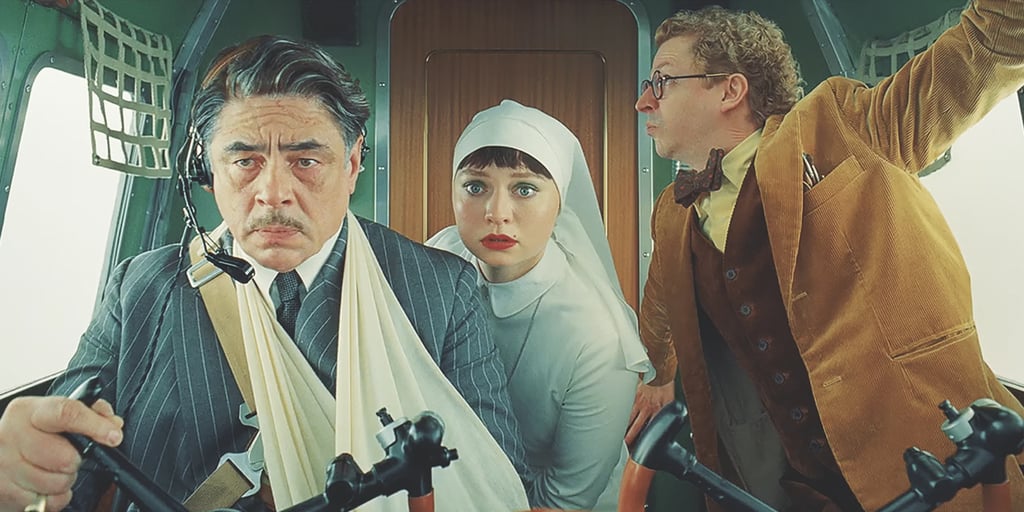Review: The Phoenician Scheme
Whimsy for whimsy's sake: Wes Anderson's latest pastel adventure shines less bright despite the many stars. ★★½
5/28/20252 min read


Wes Anderson’s The Phoenician Scheme arrives meticulously crafted as usual, but emotionally muted in a way that even longtime fans might find perplexing.
Zsa‑Zsa Korda (Benicio del Toro), a terminally ill tycoon in a fictional 1950s Middle Eastern republic, attempts one last grand corporate manoeuvre — and imperils the future of his legacy by calling in his estranged daughter, Liesl (Mia Threapleton), a nun-in-training, to inherit his empire. Michael Cera’s Bjørn, the doe‑eyed Scandinavian tutor, provides much needed levity, and frankly gains the film a whole extra star.
On paper, this sounds like fertile territory — and indeed Anderson leans fully into his signature visual tours de force: impeccable symmetry, precise colour palettes, and a production design so theatrical it verges on stagecraft (kudos to designer Adam Stockhausen at Studio Babelsberg). But in practice, the whole thing feels stale — whimsy for whimsy’s sake. The world‑building lacks the electric imagination of Grand Budapest Hotel or Moonrise Kingdom. Instead of vivid fantasy, this is stylised pastiche: a serene, sanitized Phoenicia that feels oddly thin, even given Anderson’s typically playful aesthetic.
The emotionally fraught father‑daughter relationship at the film’s core never quite lands. Perhaps Anderson’s gaze is too stylized here to allow real intensity. From the outset, I found myself less invested in the plot’s so‑called “scheme” (corporate gambits in shoeboxes arranged like boardroom taxonomies) and more bored by it — this felt more like an exercise in contractual intrigue than character drama.
That said, Mia Threapleton shines. Eerily reminiscent of her mother without being derivative, her deadpan performance brings Liesl to life in small but memorable bursts. Not actually realising she is Winslet's daughter until after the film, my uncanny realisation came after two hours of scratching my head at the familiarity. She gives the emotional anchor the film so desperately needs. Benicio Del Toro, for his part, is solid — suave, self‑possessed, and convincingly torn — but the supporting ensemble feels largely underused. With the likes of Scarlett Johansson, Tom Hanks, Jeffrey Wright and Bill Murray in the mix, it’s a shame their roles weigh so little.
Bruno Delbonnel’s cinematography is moody and restrained—choosing browns and greys over Anderson’s typical pastels gives the film a bleaker tone, but the emotional undercurrent that should justify that choice never quite surfaces. Alexandre Desplat returns with a score balanced between original cues and classical pieces — elegant, but ultimately more decor than heartbeat.
While undeniably meticulously made, full of precision and talent,The Phoenician Scheme lacks the emotional resonance — and the spark — that made Anderson’s earlier work so enchanting. Michael Cera and Mia Threapleton elevate what otherwise feels like an overpopulated ensemble of underused stars. If you're a Wes superfan and want to drink the immaculate visuals and droll stylized comedy koolaid, stick around. But if you’re hoping for the magic of his earlier work, this one’s likely to leave you in the lurch.
Subscribe for Film Insights
Get the latest reviews and discussions delivered monthly.
CONTACT tom.christopher.writer@gmail.com
© 2025. All rights reserved.
